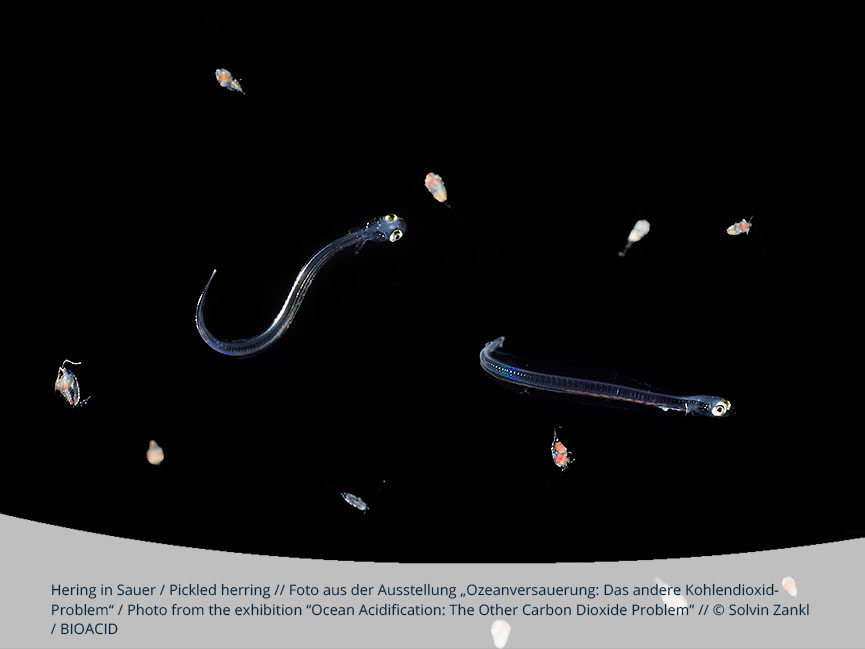The development of herring that had hatched inside the mesocosms during the experiment was monitored closely. By comparing larvae that grew under today’s and under future carbon dioxide concentrations, the researchers wanted to find out whether ocean acidification affects their growth. Not only direct effects were taken into account, but effects through alterations in food were factored in as well.
While fisheries biologists are investigating how acidification affects the development of herring larvae inside the mesocosm, laboratory studies with juvenile cod suggest that fewer recruits enter economically important stocks. This has to be taken into account in future fisheries management if fish stocks are to be protected.
In the Arctic, BIOACID-members from the Alfred Wegener Institute are observing how atlantic cod is moving north. This is putting their relatives – the native polar cod – under pressure. Since juvenile polar cod in particular are already weakened by ocean acidification and rising water temperatures, they might be less able to meet the challenge.
In this video portrait, Dr. Felix Mark, marine biologist at Alfred Wegener Institute explains how Atlantic and polar cod compete in Arctic waters.
Photo: Solvin Zankl
